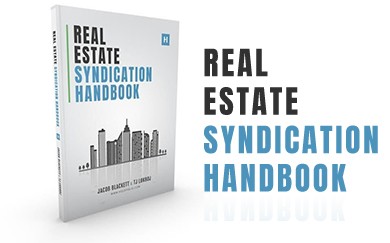Success is not being born with money and opportunity, rather it comes from what you do with them. Not everybody embarking on a real estate investment journey begins the race with a lot of capital, but we all have common opportunities.
There are many creative ways to start investing in real estate, and we’re going to teach you how to begin today by recognizing and leveraging the options available to you.
Real Estate Crowdfunding
Real estate crowdfunding is a way of raising funds for real estate investments by becoming a part of a group of investors who each contribute a set amount to the acquisition. Simply put, it is a technique of collecting finance that allows small-scale real estate investors to participate in large-scale projects.
Due to its high returns and low risk, real estate crowdfunding is one of the best passive revenue sources for investors. Holdofolio has put together a simple, efficient approach for customers to obtain access to lucrative real estate offers. Interested investors can browse active investments and handpick the property they want to invest in after signing up for access to Holdfolio’s web portal.
Learn more about non-accredited investor crowdfunding with Holdfolio.

How Does My Financial Situation Affect My Crowdfunding Opportunities?
Usually, real estate syndicators accrue investors by gauging an individual’s economic status to determine their eligibility for investment. Accredited investors are those who can meet predetermined financial requirements. With a sufficiently high income or net worth, accredited investors have a golden pass into real estate investment opportunities. Most real estate investment companies preclude non-accredited investors from partnering with them.
Holdfolio’s crowdfunding system is designed for non-accredited investors. Low capital applicants can now profit by passively investing in multifamily properties.
Typically, investors are required to deliver a $50k minimum holding upfront. With Holdfolio you can enter the game with as low as a modest $20k in the bank. What’s unique about Holdfolio’s approach is that by slashing the barriers to entry into a multifamily investment, regular people gain access to the same rewarding deals as pro investors.
Crowdfunding is the only passive investment option where you can sign up today and grow your capital with our average 18.87% investor return with no stress. You don’t have to be an experienced investor, because Holdfolio handles the hard work for you.
Most real estate investments demand site inspections, negotiations, a stack of paperwork, as well as spare time and money for property management allocations. Holdfolio’s investor portal is offered exclusively online, so it’s simple and easy to fast-track a strong portfolio.
The three steps to becoming an investor – create an online account, select an investment, and deposit money – are all it takes to produce compounding positive outcomes for your finances. Manage your portfolio online from the comfort of your home, and we’ll manage the properties so you have more time for the things you enjoy.
For those with plenty of time available, perhaps you’ll prefer a more active approach.
House Hacking

House hacking is the term used for individuals that sublet a spare room in their home and make money off the rental income. Whether you already own a property or live in a house with an extra guest room, this method will demonstrate how to get into real estate with almost no money.
Begin by researching your lease agreement and local laws to ensure you’re legally equipped to rent a room to a third party. District housing authorities or local government websites provide this information. Check housing codes to ensure the room is safety compliant. For example, some housing codes require large windows in liveable rooms for emergency escape purposes.
Consider whether you want to rent the room furnished. Short-term rental tenants usually expect furnishings, and in many cases, people pay more for large furnished rooms. You can charge more for an independent living space, with private access, kitchenette, and bathroom.
Get Creative
A Long-term lease provides a more steady and stable income stream, but it’s not your only option. If you’re located in a metropolitan area or tourist hotspot, take advantage of short-term visitors by renting your spare room through accommodation providers like Air B’n’B. Buying a house with extra rooms to rent out is another way to consider this approach.
If you feel hesitant about sharing a living space with a tenant, rent the room for storage. Be sure to do your due diligence by ensuring your renters are trustworthy, and clarifying access expectations.
House Hacking requires energy and time to organize and manage, but the rental yield will be worth it.
A Sandwich Lease Option
Many people wonder how you can invest in real estate with very little money in the bank. Those people haven’t heard of the sandwich lease option. This approach is advantageous for those who want a foothold in the real estate market without going through financial institutions and without hefty down payments.
A sandwich lease is a subletting strategy that facilitates entry-level investors with limited capital and experience. Similar to renting rooms, this option positions a real estate investor between the property owner and the tenant-buyer.
Here’s how it works:
First, conduct an online search to find a rent-to-own home. When you discover your desired property, you enter a contract with the property owner. In this example, they are the lessor and you are the lessee.
Next, find somebody prepared to enter a parallel agreement with you to move into the home. The catch is that your asking price is greater than what you’ve agreed to pay in your lease with the property owner.
In layman’s terms, you agree to lease a property from the owner, but instead of living in it, you find someone else to move into the property who is prepared to pay you more.
The dividends you earn from rental income are determined by calculating the difference between what you have agreed to pay the property owner, and what your tenant has agreed to pay you. You can also capitalize on the sale of the property itself.
It’s worth disclosing your intentions to the homeowner. Some rent-to-own contracts prohibit sublease agreements, so be upfront and make sure the homeowner is on board. Use your savvy communication and negotiation skills to take advantage of this technique.
Similar to renting a room, sandwich lease ventures call for time to manage. They can be risky and labor-intensive because they involve business with two parties rather than one. However, as a low-capital investor, this is one of the most efficient ways to leverage your money.
Property Flipping
 ‘
‘
Perhaps you already know how to invest in real estate with little money and have achieved a basic level of financial leverage or lender support. House flipping could be a well-calculated move. This strategy is more contingent than the alternatives and consumes a significant amount of time and effort. But you stand to gain a desirable return on investment if you play your cards right.
Property flips involve buying for renovation, then re-entering the market to sell for profit. An investment property sold for rehab is usually below market value because it requires a laborious undertaking before it is inhabitable.
Not only does the buyer fund the purchase of the property, but also the repairs. These can be achieved more cost-effectively if you have the time and skills to commit to the work, though contractors are available for flexible budgets.
Before buying, scan the paperwork regarding the construction and condition of the property with a fine-tooth comb and crunch the numbers thoroughly. Hire a professional inspector and ensure you account for these expenses in your breakdown. Certain urban areas have local tax and legal obligations that may affect house flipping projects.
Related expenses include:
- purchase costs
- holding costs
- renovation costs
- selling costs
Get quotes so that you can set realistic expectations about the scope and financial commitments of the work. Researching this stage will be time-consuming, but it’s a critical step. By being aware of the profit available from house flipping – including the purchase price and expenses – you’re better equipped to land a smart deal.
How Does This Gain Capital?
The money-making potential of house flipping is driven by how much you pay for the property. Strong negotiation skills will be necessary to get a good deal.
The second way this makes you money depends on how cost-effective renovations and repairs are. For example, by investing your own time and skills to rehab the interior and landscape you can save the cost of hiring contractors.
You may need to hire professionals for tasks like plumbing and electrical, roof repairs, and structural or health and safety compliance issues. For tight budgets, reach out to your network and hustle.
Aim to make the process as quick as you realistically can, so you sell in the same market that you bought the property.
Seller Financing

Not every investor can meet the strict lending requirements of mortgages at the beginning of their real estate journey. Seller financing is a practice where property owners also serve as the mortgage lender, eliminating the need for banks, credit unions, or other financing institutions to finance the sale. Instead, the homeowner owns and handles the debt themselves.
This generally happens under one of the following two conditions:
- There is no mortgage on the property
- The seller’s financing institution has agreed to extend the mortgage
The seller extends credit to the buyer to finance the property purchase, minus any down payment. Both parties sign a promissory note where the buyer agrees to pay in installments over a set period.
With seller financing, you can land great flexibility in agreement terms, financing options, and interest rates, which is ideal for low-income, or first-time buyers. Additionally, this strategy reduces closing costs which can offset standard credit checks and legal expenses.
Some risks include fewer regulations to protect home buyers, and the possibility of early foreclosure because the seller has defaulted on their payments to senior financiers. Sellers can use this arrangement as an opportunity to sell a home “as is,” which could lead to unexpected maintenance expenses later on. Both buyers and sellers are advised to do due diligence by conducting thorough research. Consider employing an experienced real estate lawyer to draw up the contract so that the agreement is watertight.
Summary
You don’t need a lot of capital or industry experience to get involved in real estate investment.
With a little savvy, these opportunities will help get a foothold in active investment to begin your real estate journey. House hacking and sandwich leases are an easy way to start with minimal capital and require an ongoing property management commitment. Through preparation and smark risk management decision-making, house flipping and seller financing can improve your finances significantly. The drawback of these strategies is that they consume greater amounts of time and stamina than crowdfunding, and at least a baseline of financial leverage.
Holdfolio crowdfunding is the only approach that saves you hassle while you receive a passive income, and watch your investment grow. Register with Holdfolio crowdfunding to start your investment journey (with or without little money) today.
 Back to Blog
Back to Blog




